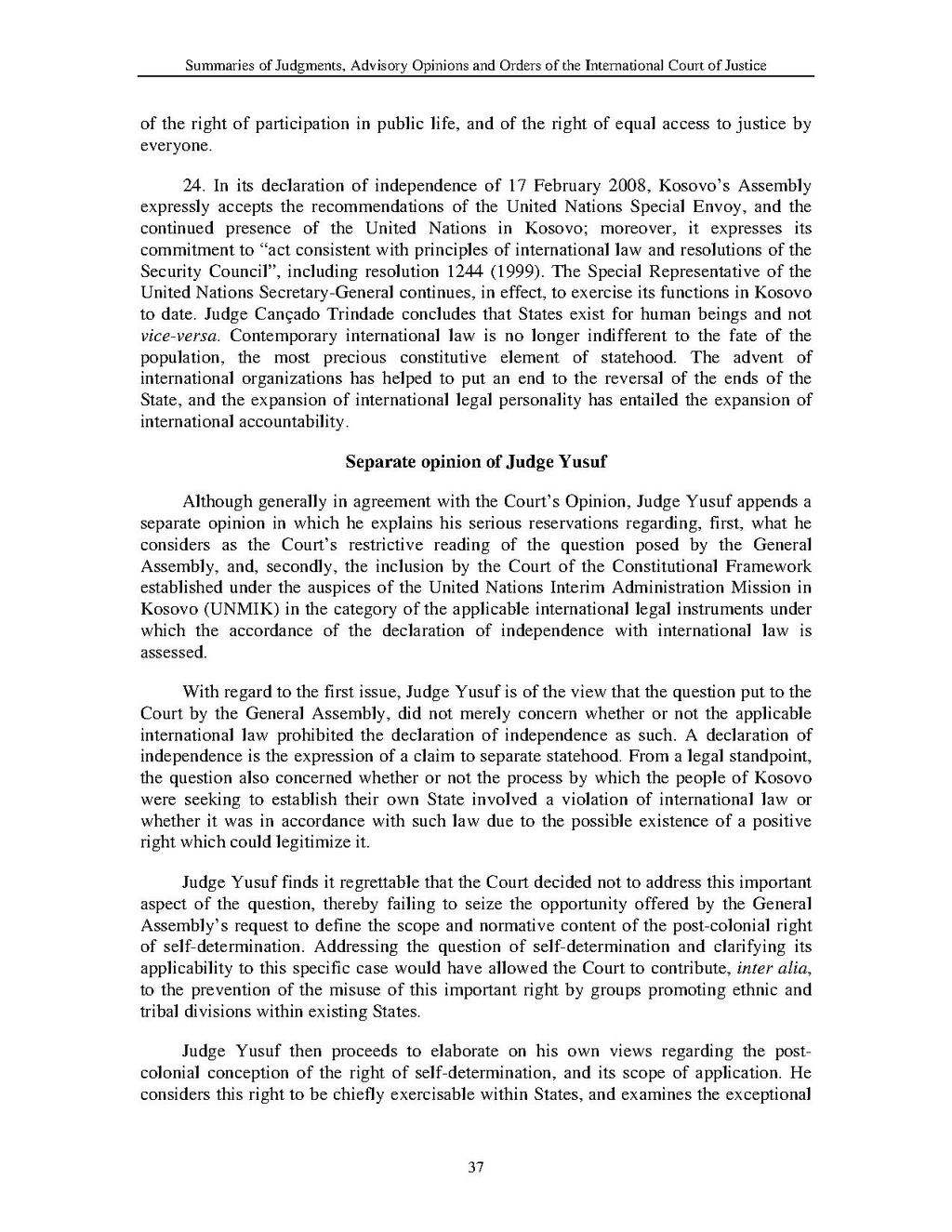Summaries of Judgments, Advisory Opinions and Orders of the International Court of Justice
of the right of participation in public life, and of the right of equal access to justice by everyone.
24. In its declaration of independence of 17 February 2008, Kosovo's Assembly expressly accepts the recommendations of the United Nations Special Envoy, and the continued presence of the United Nations in Kosovo; moreover, it expresses its commitment to "act consistent with principles of international law and resolutions of the Security Council", including resolution 1244 (1999). The Special Representative of the United Nations Secretary-General continues, in effect, to exercise its functions in Kosovo to date. Judge Canado Trindade concludes that States exist for human beings and not vice-versa. Contemporary international law is no longer indifferent to the fate of the population, the most precious constitutive element of statehood. The advent of international organizations has helped to put an end to the reversal of the ends of the State, and the expansion of international legal personality has entailed the expansion of international accountability.
Separate opinion of Judge Yusuf
Although generally in agreement with the Court's Opinion, Judge Yusuf appends a separate opinion in which he explains his serious reservations regarding, first, what he considers as the Court's restrictive reading of the question posed by the General Assembly, and, secondly, the inclusion by the Court of the Constitutional Framework established under the auspices of the United Nations Interim Administration Mission in Kosovo (UNMIK) in the category of the applicable international legal instruments under which the accordance of the declaration of independence with international law is assessed.
With regard to the first issue, Judge Yusuf is of the view that the question put to the Court by the General Assembly, did not merely concern whether or not the applicable international law prohibited the declaration of independence as such. A declaration of independence is the expression of a claim to separate statehood. From a legal standpoint, the question also concerned whether or not the process by which the people of Kosovo were seeking to establish their own State involved a violation of international law or whether it was in accordance with such law due to the possible existence of a positive right which could legitimize it.
Judge Yusuf finds it regrettable that the Court decided not to address this important aspect of the question, thereby failing to seize the opportunity offered by the General Assembly's request to define the scope and normative content of the post-colonial right of self-determination. Addressing the question of self-determination and clarifying its applicability to this specific case would have allowed the Court to contribute, inter alia, to the prevention of the misuse of this important right by groups promoting ethnic and tribal divisions within existing States.
Judge Yusuf then proceeds to elaborate on his own views regarding the postcolonial conception of the right of self-determination, and its scope of application. He considers this right to be chiefly exercisable within States, and examines the exceptional
37
